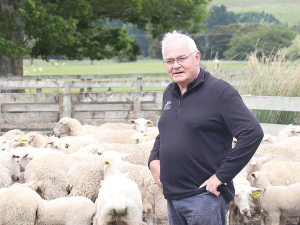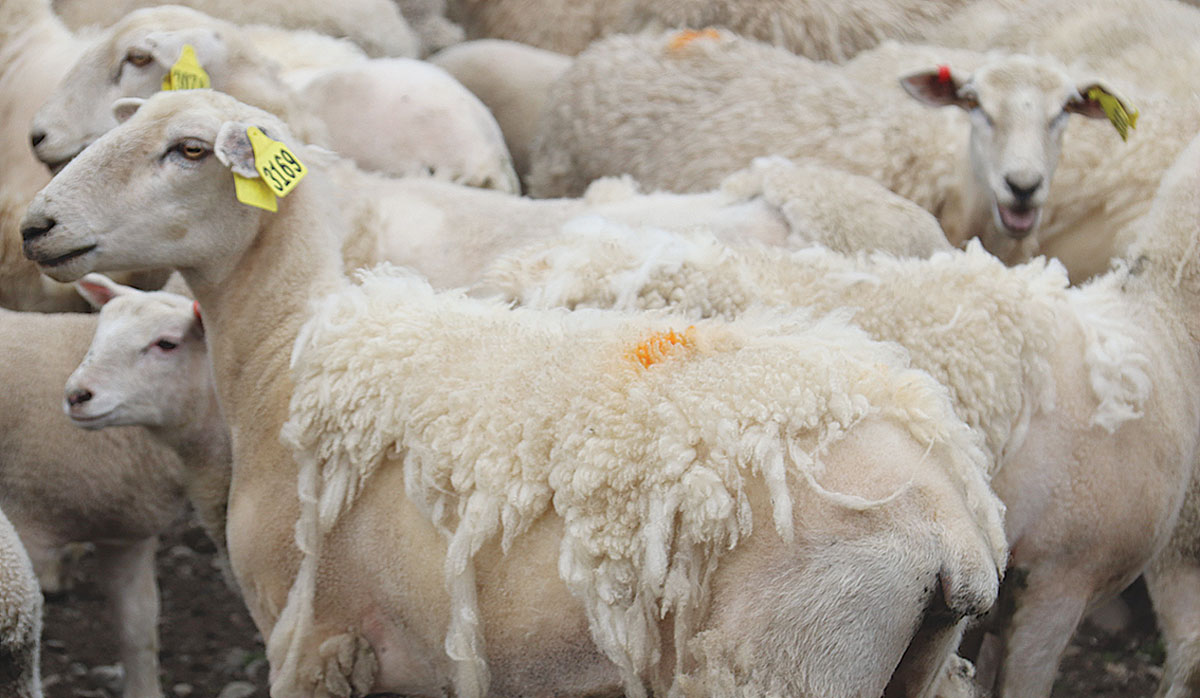NZ Catchment Groups Thrive with ‘Source to Sea’ Approach
The most successful catchment groups in NZ are those that have 'a source to sea' approach.
 Professor Steve Morris says the key purpose of the trial is to get quantifiable data on the impacts of breeding a self-shedding Wiltshire flock.
Professor Steve Morris says the key purpose of the trial is to get quantifiable data on the impacts of breeding a self-shedding Wiltshire flock.
With low wool prices, farmer interest in the self-shedding Wiltshire sheep continues to grow.
This was manifest by the large turnout at a recent field day held at Massey University’s Riverside Research farm in the Wairarapa where trials are being done to quantify the benefits and costs of breeding up a self-shedding Wiltshire flock.
Heading up the six-year trial is Professor Steve Morris who says he was very happy with the turnout for the day, and ongoing interest in the trial – now in its fourth year.
He says the key purpose is to get quantifiable data on the impacts of breeding a Wiltshire flock.
The trial involves crossing Romney ewes with a Wiltshire ram and continuing this process until the resulting progeny are fifteen sixteenths, at which point they are classed as pure Wiltshires.
He says getting funding for the sixyear research programme has not been easy given the fact that people want answers tomorrow, if not yesterday. But he says the way the trial is working out, there will be a ready supply of hard data to give serious options for farmers who are getting little or nothing for their wool.
He says on a North Island hill country class four property, the income from wool is 3% or less.
“If you’re a farmer with say 4000 ewes and your wool shed is deteriorating, there is a question mark about whether it is economic to build a new one, given the money they are getting for their wool. The cost of labour and finding it in rural areas is also a factor, especially if the tasks are dagging, dipping and shearing,” says Morris.
As well as the self-shedding aspect, the trial is looking at all other aspects of the Wiltshire such as its reproductive performance, lambing and its carcass yield. To date there is little difference in liveweights in any of the crosses, and reproductive performance was not lower in Wiltshire crosses (and there is some evidence of increased lamb survival).
Data shows the need to wait to late January to do shedding score in lambs with increased shedding in 3/4 and 7/8 cross, as expected. Morris notes that their preliminary data indicates that Wiltshire-cross lambs were able to produce equal amounts of meat of similar quality to Romney lambs and had higher dressing out percentages.
 |
|---|
|
The trial involves crossing Romney ewes with a Wiltshire ram. |
“I would make the comment that if the performance of these Wiltshire is same as other sheep on farms, that’s fine. From what we have deduced so far, the flock performance of the sheep, in terms of reproduction, growth rate, carcass conformation, is as good and in some cases better that other flocks.”
Morris says at the field days there were farmers who had been breeding Wiltshire for many years, others who had been doing so for a few years, and then there are those who are just starting to get interested. The trial is funded by L. A. Alexander Trust, the Massey Foundation and the Sydney Campbell Trust through to the end of 2026.
New Zealand and Chile have signed a new arrangement designed to boost agricultural cooperation and drive sector success.
New DairyNZ research will help farmers mitigate the impacts of heat stress on herds in high-risk regions of the country.
Budou are being picked now in Bridge Pā, the most intense and exciting time of the year for the Greencollar team – and the harvest of the finest eating grapes is weeks earlier than expected.
The Real Estate Institute of New Zealand (REINZ) has released its latest rural property report, providing a detailed view of New Zealand’s rural real estate market for the 12 months ending December 2025.
Rural retailer Farmlands has released it's latest round of half-year results, labeling it as evidence that its five-year strategy is delivering on financial performance and better value for members.
OPINION: "We are back to where we were a year ago," according to a leading banking analyst in the UK, referring to US president Donald Trump's latest imposition of a global 10% tariff on all exports into the US.

OPINION: A mate of yours truly reckons rural Manawatu families are the latest to suffer under what he calls the…
OPINION: If old Winston Peters thinks building trade relations with new nations, such as India, isn't a necessary investment in…